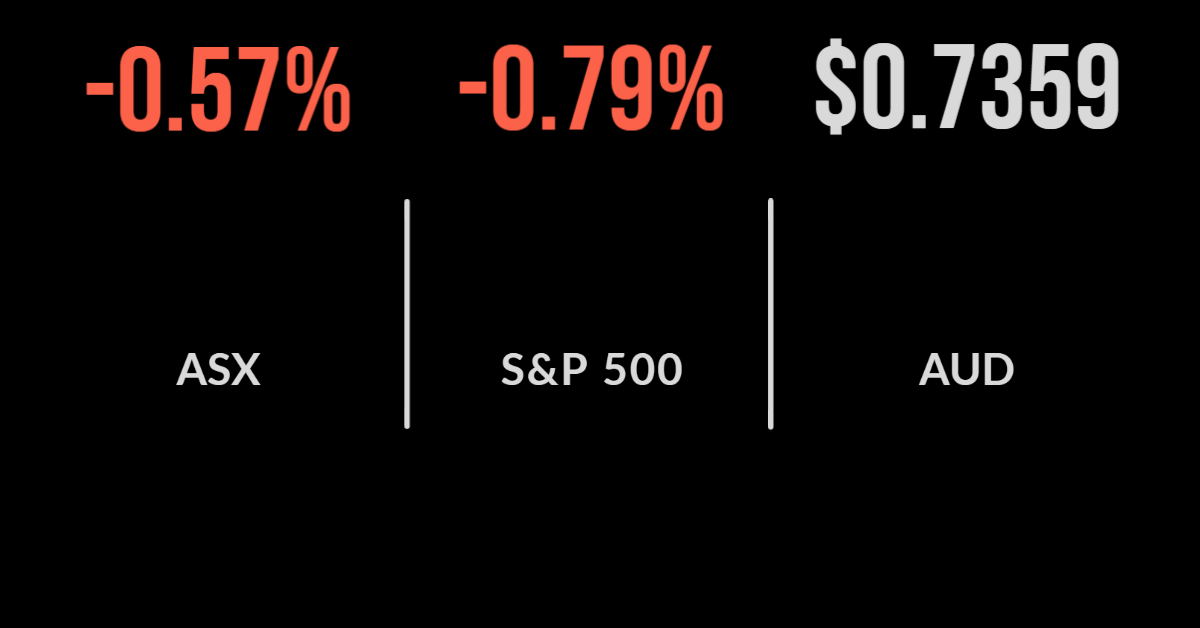Market sinks on ‘nuclear’ concerns, iron ore rally continues
News that the Russian invasion of Ukraine had resulted in a fire at one of the country’s many nuclear reactors sent shockwaves through global markets, with Fukushima returning to front of mind.
Shares in Paladin (ASX: PDN) bore the brunt, falling 14 per cent but trading as much as 25 per cent lower, as investors once again realised the gravity of the events on the other side of the world.
Ultimately the market finished down 0.6 per cent on Friday but managed a 1.6 per cent gain across the week.
Just two sectors managed positive results on Friday, with consumer staples and utilities gaining behind the likes of Coles (ASX: COL) and AGL (ASX: AGL) which were up around 1 per cent respectively.
Gold miners finished the week strongly despite a late rally in the AUD, with bullion in ever higher demand.
There was little in the way of news outside of CSL (ASX: CSL) nearing control of Vifor Pharma.
Across the week the story was clear, with supply shortages and an impending surge in Chinese demand boosting both the materials and energy sectors which gained more than 8 per cent each.
Whitehaven Coal (ASX: WHC) was the top performer, gaining 25.1 per cent, ahead of Lynas (ASX: LYC) and Woodside (ASX: WPL) which both jumped 12 per cent.
Zip Co and Life360 continued to feel the selling pressure, down 22 and 14 per cent respectively.
Global markets weaken despite strong jobs report, oil hits 1970s high
There is a growing unwillingness for traders to hold equity positions over the weekend amid the most volatile and uncertain time in several years.
This risk aversion saw the Dow Jones fall 0.5 per cent on Friday, the S&P500 0.8 and the Nasdaq 1.7 per cent.
The latter was pushed lower by the likes of Airbnb (NYSE: ABNB) and Microsoft (NYSE: MSFT) which fell 5 and 2 per cent respectively after announcing sales bans in Russia and Belarus.
Concerns about Russian troops taking control of key infrastructure assets in Ukraine and the fire at the largest nuclear plant in Europe were central to the selloff which overwhelmed strong jobs numbers in the US.
Payrolls increased 678,000 for the week, well ahead of the 440,000 expected yet hourly earnings were barely changed suggesting wage growth isnt as worrying as previously expected.
With the oil price now trading over USD$115 the threat of stagflation and an energy induced recession is very real, leaving central banks in an extremely difficult position for the remainder of the year.
Across the week, the Dow and S&P500 both fell 1.3 per cent and the Nasdaq 2.8 per cent.
Know your index, Government pressure on pension funds, Russia is exacerbating trends
Whilst passive and index-based strategies have an important role to play in offering diversified, low-cost exposures to some markets, the events in Russia have once again highlighted some of the risks associated with the structure.
The index provider is the only entity able to influence where investments are made, and the events in Russia showed the challenge of passive investments in emerging markets, which automatically formed part of this index.
They also highlighted the risk of trading global indices with less liquid stocks in the Australian market, with the massive moves in Russia stock prices making it difficult to emerging market strategies to remain consistent.
It was somewhat surprising that it took several weeks and pressure from Treasurer Frydenberg for Australia’s default super funds to decide it was time to divest their Russian holdings.
But on Friday, they all but confirmed that they would be cutting a circa $2 billion allocation within the $2 trillion dollar sector.
Similarly to the ETF issue, it can be extremely difficult for members to quickly ascertain how much their portfolio is exposed to Russia and other developing world countries.
Sticking with Russia, whilst the events have introduced geopolitical risk, they have essentially just exacerbating the economic trends already in play.
That is an increasing inflation environment with the backdrop of a slowing global economy and a shortage of energy a key contributor.








